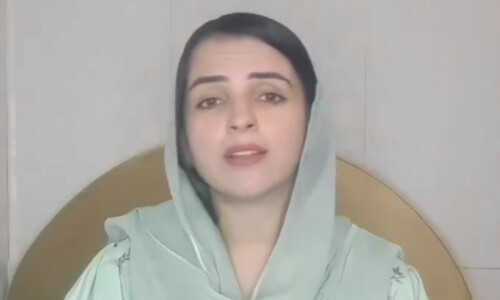Raymond Davis — United States citizen and ex-Central Intelligence Agency employee who sparked a diplomatic storm in Pakistan in 2011 after shooting dead two young men in Lahore — has written a book about his experience.
In his memoir, titled The Contractor: How I Landed in a Pakistani Prison and Ignited a Diplomatic Crisis, Davis talks in detail about his experience in Pakistan.
According to its description, the book is, "an up-close and personal look at the 2011 incident in Lahore, Pakistan, that led to his [Davis's] imprisonment and the events that took place as diplomats on both sides of the bargaining table scrambled to get him out".
On January 27, 2011, Lahore's Lytton Road police had registered a case against Davis on the charge of killing two Pakistani citizens, Faizan and Faheem, at downtown Qurtaba Chowk. Two traffic wardens had chased down the suspect, who pleaded he had killed the bike-riders in 'self-defence' after they tried to rob him.
The killings had rocked Pakistan and strained ties between Islamabad and Washington. The US pressed for diplomatic immunity for Davis, leading to some clear and many ambiguous responses from officials in Pakistan. Shah Mehmood Qureshi, who was the foreign minister at the time the incident took place, had stated that the arrested American didn’t enjoy diplomatic immunity.
The US plea was weakened when it came out that the man arrested was actually one of the CIA's operatives in Pakistan. The pardon granted to him in exchange for blood money also meant an implicit admission on the part of the US that Davis either didn’t qualify for immunity or the team fighting his case had lost all hope of being able to convince the authorities here that he enjoyed such a status.
The Lahore High Court had left the decision to the trial court.
The tension-filled saga — spread over more than a month and a half — was brought to an abrupt conclusion on March 16, 2011, when Davis was released and quickly flown out of Pakistan after the heirs of the two youths he had shot dead told the court they had accepted monetary compensation to settle the case.














































